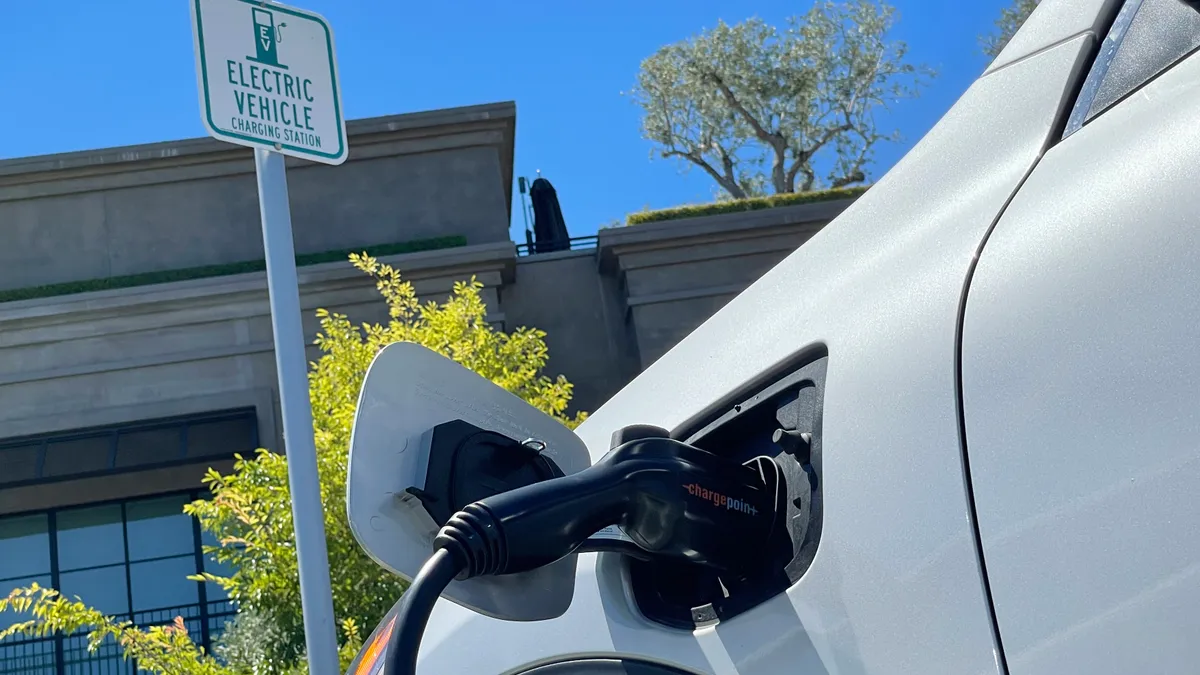The U.S. Department of Transportation opened applications today for the Charging and Fueling Infrastructure Discretionary Grant Program, a $2.5 billion, five-year program to support community and neighborhood electric vehicle charging infrastructure. The first round of funding will make $700 million available from fiscal years 2022 and 2023 to cities, counties, local governments and tribes.
The CFI program was created by the 2021 infrastructure law. Funding is divided equally between the community program, which aims to place EV charging infrastructure in publicly accessible locations, and the corridor program, which will install infrastructure along designated alternative fuel corridors. Hydrogen, propane and natural gas fueling infrastructure can also be funded under these programs.
The FHWA is “committed to helping towns and cities, large and small, build modern, sustainable infrastructure that promotes equity and opportunity for their local economies and net-zero emissions for the nation by 2050,” Federal Highway Administrator Shailen Bhatt said in a press release.
The community program can be used to install EV chargers in parking facilities at public buildings, public schools, and public parks or in publicly accessible parking facilities owned or managed by a private entity. According to the FHWA, community program projects that meet current or projected demand for charging or fueling infrastructure and include faster charging speeds will be given consideration, with priority given to locations in rural areas, low- and moderate-income neighborhoods, communities with low ratios of private parking and those with high ratios of multiunit dwellings.
During a press call Monday, an FHWA official said they expect most of the community program to fund the installation of level 2 chargers, the 220-volt chargers common in homes, workplaces and public facilities.
The corridor program builds on the National Electric Vehicle Infrastructure Formula Program for highway charging, bringing “EV charging into urban and rural communities, downtown areas and local neighborhoods, particularly in underserved and disadvantaged communities, as well as to designated alternative fuel corridors,” according to the press release.
Applications for the corridor program that build charging or fueling infrastructure for medium- and heavy-duty vehicles along the National Highway Freight Network and near intermodal transfer stations will be considered, along with construction applications that would not be possible without federal assistance. The FHWA will also look for projects that help meet excess demand in existing locations, meet current or future market demand, improve access where current and future needs are identified, convert alternative fuel corridors from corridor-pending to corridor-ready and those that “support a competitive market without impairing existing providers.”
The FHWA and the Joint Office of Energy and Transportation will offer webinars for potential grant recipients in March and April. Applications are due by May 30.












